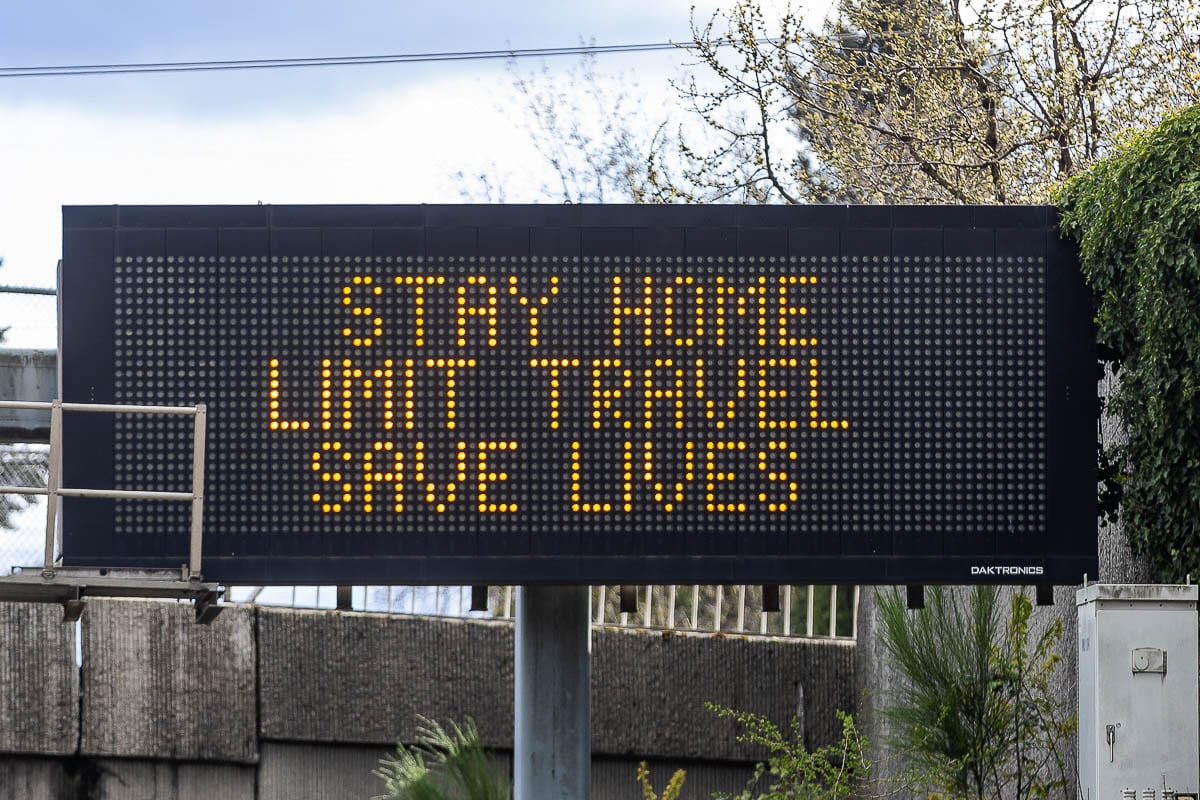Washington State Department of Health offers latest episode in Coping with COVID podcast series
We’re about eight months into the COVID-19 pandemic, and there’s a lot going on around us. We’re balancing a lot — work, school, family, and the upcoming holidays — during a time of great uncertainty. If you find yourself reacting more negatively to things you’re experiencing, you’re not alone. Feeling angry or frustrated is a normal response during a pandemic, but there are things you can do to manage those emotions.
In this episode of our Coping with COVID podcast series, Kira Mauseth, PhD and Doug Dicharry, MD discuss the causes of strong emotional reactions and what we can do to feel more in control during stressful times.

Stress can cause emotional dysregulation
During times of stress it can be difficult to control, or regulate, our emotions. We might react more negatively or intensely to things that normally wouldn’t bother us. But emotional dysregulation — feeling like you can’t control the way you respond to stressors — is a normal response to a pandemic.
In stressful situations, we perceive things differently: we become so focused on things we see as threats that we can’t see the positives or think clearly about solutions. And as the brain gets tired from dealing with the stressful events around us, we tend to react more emotionally.
Emotional dysregulation in adults might mean:
- Feeling angry, frustrated, or irritable.
- Acting impulsively or lashing out at others, sometimes without understanding why.
In children, emotional dysregulation can mean:
- Regressing (acting younger than they are).
- Withdrawing and having little motivation to do things.
- Having stomachaches or trouble sleeping.
Emotional regulation takes practice
Don’t be too hard on yourself if you notice that you’re feeling angry or lashing out at people close to you. It is normal to experience emotional dysregulation during stressful times like these. But there are some things you can do to feel more in control of your emotions, especially before acting on them.
- Take a moment. When you find yourself reacting emotionally, pause and take a deep breath. Think about what is happening in the moment before you respond.
- Focus on the positives. Not everything is bad right now. Pay attention to the positive or neutral things in your life. Look for opportunities to build on your strengths, even when some things are hard.
- Take a social media break. Doomscrolling, or endlessly scrolling through upsetting content, can increase feelings of anxiety. Limit the amount of time you spend on social media.
- Identify your stressors. Think about what sets you off and contributes to feelings of fear or anxiety. Once you are clear about what is bothering you, you can work towards a solution.
Let children see you practicing these skills. When you model emotional regulation for kids, they develop the skills to identify and manage their emotions throughout life. Plus, adults who regulate their own emotions are better equipped to calm down kids who are emotionally dysregulated.
Don’t be afraid to ask for help
Emotional regulation is important as we continue to juggle everyday responsibilities with the stresses of the holiday season and COVID-19 pandemic. We’re still in a pandemic, and it’s normal to not feel ok. Emotional regulation is just one several skills that support our wellbeing. To learn more about ways to cope or to find additional support, visit our mental and emotional wellbeing webpage.
More information
Stay tuned to our blog for more information on how you can help stop the spread of COVID-19. Sign up to be notified whenever we post new articles.
Information in this blog changes rapidly. Check the state’s COVID-19 website for up-to-date and reliable info at coronavirus.wa.gov.
Answers to your questions or concerns about COVID-19 in Washington state may be found at our website. You can also contact our the Department of Health call center at 1–800–525–0127 and press # from 6 a.m. to 10 p.m. Monday — Friday, and 8 a.m. to 6 p.m. Saturday — Sunday. Language assistance is available.
Please note that this call center cannot access COVID-19 testing results. For testing inquiries or results, please contact your health care provider.




